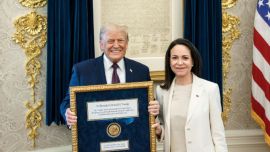Argentine bonds began falling after the son of Vice-President Cristina Fernandez de Kirchner's son resigned as head of Argentina's ruling coalition in the lower house Chamber of Deputies.
While this may seem a minor development to many, it is not, as Máximo Kirchner and his mother lead an important faction in the Frente de Todos coalition. His resignation is in protest at the government's deal with the IMF.
Last week, Argentina reached an initial agreement with the Fund in which it pledged to reduce its fiscal deficit and Central Bank financing of the Treasury. In return, the country gets a four-and-a-half year grace period before it starts repaying the more than US$40 billion in debt. That was very positive for Argentina, but not a big surprise.
Following the news, the country's bonds maturing in 2030 recovered most of their January losses. Now, they are unlikely to return all of that. However, a dose of uncertainty has been injected into the market. Máximo Kirchner's resignation highlights opposition to the deal within the ruling coalition. His and his mother's allies will push to soften a deal they believe could doom them in the next elections. So far, Cristina Fernández de Kirchner has not commented on the agreement.
The IMF deal means that Argentina can dodge an economic crisis worse than the one it already has: it does not have the hard currency to keep paying the Fund. Moreover, nothing is set in stone yet. The agreement with the IMF is an "understanding" on the framework for a final agreement that has not yet been signed.
by Sebastian Boyd, Bloomberg


















Comments